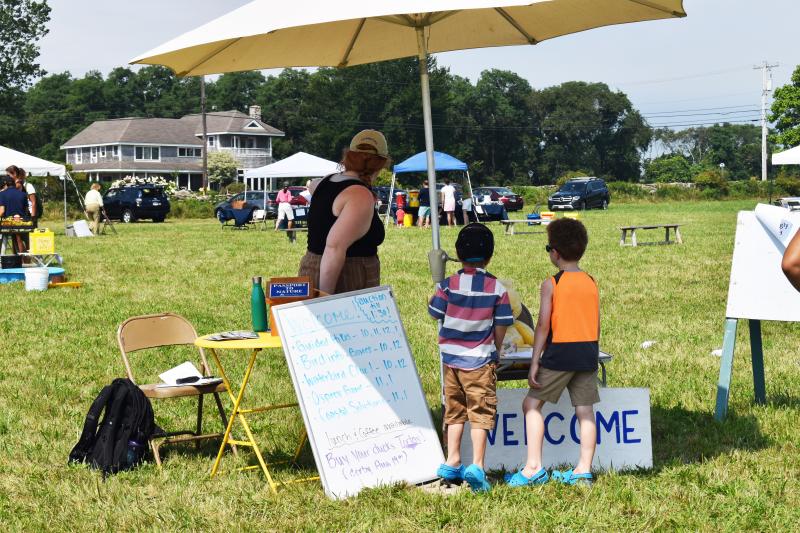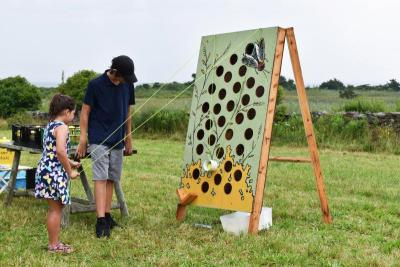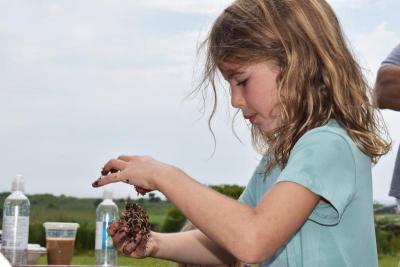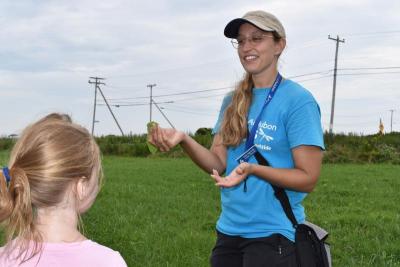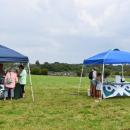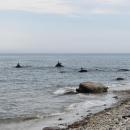Mass Audubon celebrates summer, education at Allens Pond shindig
Summer was in full swing as Mass Audubon hosted its inaugural pre-Duck Derby “Summer Celebration” on Aug. 14.
Wildlife Sanctuary Director Gina Purtell noted that the sanctuary typically hosts the seasonal festival as a way to commemorate the end of the annual derby — which sees thousands of rubber ducks set sail on Allens Pond for a big fundraiser race.
Rather than focus on the race results along the coastal habitat, Purtell instead wanted to give people one more chance to adopt a duck and to learn more about the property itself.
“We really wanted to make this more mission-central,” she said. “We really want people to know what we do here.”
During the celebration, tables and tents were set up to offer patrons information about some of the native plants and animals that live on the land.
Volunteers Judy and Harold Isachson operated a table focusing on osprey habitats and populations.
Thanks to conservation efforts, their population area along the South Coast has expanded greatly since nearly being driven to extinction during the first half of the 20th century.
“There are 85 [nests] along the Westport River,” Judy said. “They are doing very well.”
To aid the organization’s fundraising efforts, there was also a silent auction on the property.
Auction prizes included a chance to go on an owl encounter, duck shorts, CDs from area jazz musicians, an English teatime set, and crafts and paintings made by local artists.
“We had a lot of wonderful donors,” said Donna Amaral, the head of the silent auction committee.
All funds from the auction, along with rubber duck adoptions, go toward supporting Mass Audubon’s education, conservation, and outreach work.
Attendees were also able to get more hands-on education through guided walks along the pond and activity stations at the main celebration.
At Climate Resilience Coordinator Danica Warns’ station, families were able to learn about the resiliency of the salt marsh that makes up Allens Pond, along with learning of its relationship with the species that live there.
“Salt marshes provide a lot of things for animals and also for people,” Warns explained to a group of families.
Marshes filter out pollution, provide habitat for wildlife, and protect homes from flooding.
But increasing stress from pollution and sea level rise is leading to die back areas, where high tides are leaving standing water on the marsh that kills the plants
To better facilitate the migration of the low marsh vegetation, volunteers are implementing restoration techniques with grant support from the Southeast New England Program.
Some of the work done so far, Allens Pond Naturalist Julia Signorella said, includes the removal of invasive species and the addition of “runnels” — a narrow channel in the ground for liquid to flow through.
Runnels run along the surface of the ground toward Buzzards Bay.
“They really help now that the tide is rising too fast,” Signorella said.
Bridgewater resident and Audubon member Jennifer Rampsi said she really appreciated the celebration. She said her family especially enjoyed learning about the property and checking out the scenery.
“This area is so beautiful,” Rampsi said.



